- Home
- Scott Turow
The Laws of our Fathers kc-4 Page 19
The Laws of our Fathers kc-4 Read online
Page 19
By the time we are done, the courtroom is largely empty. A few stragglers, elderly buffs with no place to rush to, are gossiping behind the glass, while Seth has remained at the near end of the jury box. He's preoccupied, looking toward his lap, his hands moving furtively. Idling on the question that finally came home to me after overhearing Dubinsky and him yesterday, I drift his way.
'What in the world?' I ask, when I first see the needle in his left hand. Then I realize he's sewing a button back on his sport coat. He's made a terrible hash of it. Thread is going everywhere. It looks less like a button than a leak. 'You can see why I gave up a career in surgery.' He bites off the thread between his teeth. ‘I thought we weren't talking,' he says.
'We're not.'
'Ah.'
'There's just one question I've been meaning to ask you.'
‘I figured you would. The answer is, I truly don't know. That's straight up.' His eyes, a dense, greenish-grey, narrow mysteriously. I haven't a clue what he means. 'Forget it,' he says. ‘I need some work on my Carnak routine.' He raises a hand, inviting my question.
'I couldn't help noticing you sitting here every day with Stew Dubinsky. I wondered how well you know him.'
'Stew? Only since kindergarten. We all grew up in U. Park together.'
'All of you? You mean Stew and Hobie and you?' I didn't have the remotest idea how I was going to broach this subject as I moseyed over, but I've done a decent-enough job. I sound casually curious. Life is full of these funny little connections.
'Hobie wasn't there in grade school. He went to St Bernard's?'
'St Bernard's,' I say, simply to fill airtime. When I was in fourth grade, my mother made the first of her periodic out-of-town journeys, living for three months in North Carolina while she attempted to organize a stamping plant. In the interval my Aunt Hen put me in St Rita's down the block. I was already developing, well ahead of everyone else, and my skin had become awful. I was delighted by the uniform and the opportunity to look like all the other girls. By comparison, the discipline, the catechism, the nuns smacking their rulers on the desktops seemed unimportant. When Zora came back, though, she had a fit. Catholic school? Had Henrietta lost her mind? 'Hobie's Catholic?' I ask, still being somewhat diversionary.
'Just his mother, but Loretta's pretty religious. He got a full dose. I remember, when I was first getting to know him, in sixth grade we had this phenomenal argument because he refused to believe his parents had intercourse in order to conceive him.' Seth laughs at the memory. 'I actually made him cry.'
'But you guys all went to high school together, you and Hobie and Stew?'
'U. High,' he says, 'in the fabled days when U. High was a question, not a place.'
A little buzz passes through me, the naughty satisfaction of the old prosecutor vindicating her suspicions. Stew and Hobie are old pals. Hoping to remain unobtrusive, I smile at Seth's joke.
'If you stick around for Narcotics Court,' I say, 'you'll find those days aren't over. I live in the neighborhood. They have undercover cops in the high school now.'
'Yeah,' he says. 'That's a good column, you know. I write it three times a year. Being the first generation to take a dose of our own medicine. "Listen, kids, Daddy really didn't mean what he was saying about sex, drugs, and rock 'n' roll." '
'And turn down the record player when I speak to you.'
'The CD player.'
'The CD. So, thanks,' I say.
'That's it? Jeez, don't run away. So what's the deal with Stew?'
'Nothing to talk about. Something struck me while I was on the bench.' He'll mention my question to Stew, I know, even perhaps to Hobie. Which is fine. If it's what I fear, then I want them to realize I'm on to them.
'No, really,' Seth says. 'Take the load off your feet. Tell me what I've missed in the last twenty-five years. Anything dramatic?'
The courtroom is empty now and quiet. One of the stout Polish cleaners, friendly, mute, and virtually analphabetic in English, has come through the chambers corridors and is emptying the trash can behind the bench.
‘I don't think of my life as dramatic, Seth. Anything but. What about you? You're the one who's rich and famous. What's dramatic with you?'
'I'm not famous. Not really. I may not even be that rich pretty soon.' His eyes, his face draw in somewhat with the discomfort underlying this cryptic declaration, then he disciplines himself to look straight at me. 'Lucy and I are separated,' he says.
Sorry, I say. The only thing you can.
'Yeah, well,' he answers. 'Life. Love. The big city. We've been talking about getting back together. I think we will. But it's been a pretty rough patch.' He sighs at the thought. I should have known better than to argue with Marietta. She always has a faultless grip on facts.
'Is she well? Lucy?'
He nods. ‘I think so. She still looks like she's fifteen. There are days I'd say she acts that way, too, but then again there's twenty-five years with me, so she's got her excuse.' The joke does not seem to elevate his mood. 'So you live in U. Park?' he asks. 'You know, my father's still there.'
'Your father? God, my memory really must be going. I have this picture of him as elderly twenty-five years ago.'
'He was. He's ancient now. Don't bother looking for a nicer word. Ninety-three. Visibly failing. Still going to the office a couple of times a week. And still full of shit.'
That was a difficult relationship, Seth and his father. The old man was cold, unyielding. A Holocaust survivor. He had endured, but was hardly unharmed.
'And your mom?' I ask.
'Gone. She died in a home. Advanced Alzheimer's. Terrible thing. It's just a body in a bed.'
'Oh, that's right.' I tap my forehead. 'That was a number of columns, wasn't it?'
'Columns? Hell. That was two years of treatment.'
He's funny, he always was funny, a sweet, vulnerable boy, unusually in touch for a male of his era with the fact he was needy. Irresistibly, mysteriously, I find, still standing above him, that I've touched him on the shoulder. He asks, of course, about Zora, and I answer with the sad news: passed too. I hope my delivery is stoical and mature, but there is still a throb, an inner outcry whenever I am forced to acknowledge this.
'She died of lung cancer four years ago.'
He winces. 'God. I remember the cigarettes. Chesterfields, right? Cancer,' he says.
'I had cancer myself,' I tell him. 'You asked what was dramatic. I suppose that was.'
'No shit,' he says, 'cancer?'
'It was shit, but I'm not kidding.'
'Lung cancer?'
'No, no. Breast. I had a breast removed, almost twelve years ago.' I never impart this information, especially to a man, in a mood of complete neutrality. In some minute way, I always feel as if I'm issuing a warning, an attitude that persists even though I took my retirement money when I left the federal government and, with Gwendolyn's relentless encouragement, used it for a reconstruction. I had terrible conflict about this. I hate the idea of apologizing for being sick. And I'd adjusted. On Saturdays, I'd walk around without even bothering to stuff the other side of my bra. Then I became single again. And it was easier for Nikki. She'd begun to notice and I was always concerned about explaining it to her. Even the little ones are so quick to peek into the void. And what reassurance can I really give her?
Seth says the right things, mentions everyone he knows who's doing well, cites the recovery statistics with which he's familiar. He's clearly pained at the thought of what I went through.
'Was chemo as bad as they say?' he asks.
‘I didn't have chemo. I was lucky. There were no lymph nodes. And I still wanted to try to have a baby. It was radiation. A lot of radiation. It was pretty terrible. But I hated the surgery more. It just seems so barbaric. Cutting off a piece of you? The whole experience made me crazy. It was a little disappointing. I thought I was mature enough to weather anything.'
'No such illusions here.' He's raised a finger. 'We're all as crazy as we used to be, So
nny. There are just fewer opportunities to show it.'
That line I like. My laughter bounces off the empty pews. Standing over Seth, in my robe, I feel some echo of the usual relations of the courtroom, where so many men look up toward me, hoping for clemency of some kind. Seth also wants something. I can feel that much. I've noticed him once or twice, resting his chin atop his hand on the urethaned oak railing of the jury box, his expression as he watches me so stupid, beamish, and – face it – adolescent that I find my heart surge in a combination of shock and dismay as I turn away. It is, all in all, an odd grown-up he's turned out to be. His feelings seem slightly beyond his full control, like a dripping nose. I like him, though. I'm pleased to find he's maintained some basic appeal. It would be horrifying to think I'd wasted my time with him, too, particularly since I've long since reached that conclusion about Charlie.
' Before?' he asks. ‘I thought you wanted to know what happened to Michael Frain. When you said you had a question? I figured you had to ask eventually.' 'Can I ask?'
‘I gave you my answer.' He said he didn't know.
'Well, is that all there is to it, Seth? I've always thought it was a bizarre choice for a pen name.'
'It's a story,' he answers. 'I'll tell you one day.' 'And you never hear from him?'
‘I doubt he's alive.' He says this in a morose, deadened tone that spells trouble to me.
'Okay,' I say and lift a hand in farewell.
'Are you really going to avoid me as long as this trial lasts?'
‘I intend to try.'
When I wave again, he catches my fingers, and with his other hand taps once on my knuckles, a tiny gesture affirming some lingering contact. I take it that way, with a laconic smile, and turn at once, where, to my misfortune, I confront Marietta, who has just come through the back entrance to the courtroom. Chief Judge Tuohey's chambers are on the phone, she says, counting noses for a judges' meeting later today. I take the call at my desk and assure Wanda, the judge's officious secretary, that I'll be along.
By the time I'm done, Marietta has resumed her standard lunch-hour posture at her desk in the outer office, attention fixed on a minute TV held on her lap, while she eats a sandwich off the brown sack in which she brought it. The metal band between her headphones glints amid her bushy curls, and disregarded crumbs dandruff her full bosom and the nubbly brownish tweed of her sweater. Nonetheless, I become aware, through the open doorway, of her droopy eyes drifting toward me in assessment.
'Not a word,' I tell her.
She remains silent only a few seconds. 'Folks never do forget bein in love,' she says suddenly, as if to herself.
'Oh, give it a rest, Marietta.' I scowl at her from twenty feet. She turns away, but her jaw is set as if to show she's standing her ground. 'It wasn't love,' I say, 'not for me.' She actually grimaces slightly. I'm blaspheming. But over time my understanding has become surprisingly clear. 'He adored me,' I explain, 'and the ugly truth is I loved that.' I never felt more splendid, more admired, than in those months I spent with Seth. But his attention was draining because it was so needy. Seth was like a nosebleed. So close, too close. Life with him was always on the verge of turning suffocating.
'Well, I thought you two wasn't talking,' Marietta offers in her defense.
Annie has just come in and quietly takes the straight-backed chair in the corner of Marietta's office. She is carrying a school text and demurely finishing an apple.
' I had to ask him about something.' I explain to them that I found out Hobie and Dubinsky have been friends since high school.
'So?' asks Marietta.
So it means the notion Molto offered two days ago which I scoffed at is actually possible: Hobie could have been the source of the very leak for which he blasted the state on the first day of the trial, the story revealing that Eddgar was the target of the shooting. I've caught both women's attention with this idea. Marietta lays her earphones down. Annie is quick to accept that there is a conspiracy afoot.
'That Dubinsky,' she says. 'He is bad. He is a snake.' She recalls an incident two or three years ago, during the Termolli trial, in which an oil executive and his mistress were charged with killing his wife. The judge, Simon Norfolk, found Dubinsky with an ear up on the jury-room door, during deliberations. Norfolk stuck Stew in the lockup for several hours for contempt, before the Trib's lawyers arrived in flotilla screaming about the First Amendment.
'Yeah,' says Marietta, 'but you asked the right question, Judge, the other day. What's the defense get out of leaking this? It don't make any sense for them.'
In reply, Annie speaks up softly. 'Maybe for the bench trial?' she asks. That's what's occurred to me, too.
'Think about this, Marietta,' I say. 'Tommy's hair's on fire – he has to get started, because he' s hoping to keep Lovinia corralled. Hobie knows it, since he's the one who's been causing the problem with her. So he pushes his story into the paper, screams bloody murder about how he can't get an impartial jury, and then magnanimously takes a bench so we can get started, realizing that normally I'd be reluctant to do it in a case where I know so many of the players. Remember that remark of Nile' s when I admonished him on the jury waiver? "That's what we want." '
'Ooh,' says Annie and makes a face. 'Ooh. That is sneaky.'
'What I can't figure out is what he thinks he gets out of a bench.'
Marietta laughs. 'Judge, I'm not picking on you or teasing you or nothing but, Judge, you know, there's lots of defense lawyers who work in this courthouse might have said to him, "You get a bench with her, you got a pretty good deal." That's fact, Judge.'
In this building, the judges who were once PAs are expected to exhibit the loyalty of a Marine to their former office. Many think of being a prosecutor here as akin to combat experience, each courtroom another theater in a war zone, civilization versus barbarians. After my weekly call, I've heard supervisors ask the courtroom PA for a 'body count,' referring to the number of guilty pleas. But the rhetoric I grew up with in the federal courts was constitutional not military: I still think about rights, about inviolable first principles in the dealings between individuals and the state. The defense lawyers regard me as a natural ally – and Marietta as a turncoat.
She stands, her skirt another pleated brownish print that spreads about her amply, and tosses her empty soda can into the trash, then shoots me a hard look, reaffirming her message. Hobie did this because he thinks I'm more likely than a jury to acquit Nile. Who'd be more sympathetic to Nile, twelve coldhearted folks off the street or me, somebody who knew Nile as a boy and, better yet, who knows firsthand the gripes of a child who lived through the revolution at home? That's the bet Hobie took. I'm here because I'm Zora's daughter. Always. Inescapably. Just as Gwen said yesterday. Marietta goes off, unable to restrain a slight toss of her head in unending amazement at what I miss.
*
The trial resumes with bickering. Hobie wants to have lab work performed on the money the state introduced yesterday. He cites Montague's acknowledgment that the bills had not been tested for blood, for example, or gunpowder. Rudy objects for the state.
'Yaw On-uh, such tests are to be puhfawmed befaw thee trial.'
'I made some calls,' says Hobie. 'I can have the tests done in twenty-four hours. Montague admitted the state doesn't need the bills they didn't submit to the lab. What's the harm?'
'What's the relevance?' asks Tommy. 'Even if there's gunpowder or blood on the money, so what?'
'Well then,' says Hobie, 'the state will have to explain how it got there.'
'Talk about a fishing expedition!'
Tommy's right. But I allow the motion. It's harmless, and the accepted wisdom in this job is to let the defendant have his meaningless victories. It shows evenhandedness to the court of appeals.
The state completes its examination of Lovinia uneventfully. With unsettling calm, Bug describes the shooting on September 7: the approach of June's car, her call to Gorgo, and then, when a woman, not a man, rolled down the window to t
he Nova, summoning Hardcore. The woman and she were alone for about five minutes.
'Did you have a conversation with the woman?'
'She askin, can she talk to Or-dell.' Messing with Hardcore's given name, Bug pauses to smile. Hardcore came up fast, she says, and the woman and he conversed momentarily. Then Gorgo swung out of the alley. ‘I got wounded,' she says, with the composure of a soldier.
Having survived the last of this examination, Tommy retreats to the prosecution table with a glum look, awaiting whatever will happen next. Hobie rises for cross.
'Bug,' he says. In his fine suit, a rich grey nailhead which I would bet is part cashmere, Hobie strolls around the courtroom, hands in his pockets. 'Bug,' he called her. No pretending they're unacquainted. 'Let me ask you a few questions about this shooting. You say you didn't hear what Hardcore told this lady?'
'Nn-uh. Seem like they trippin with each other.'
'Some kind of argument?'
'Seem like.'
'Did she leave the area?'
'No how. She standin there, you know, out the car, gone on with Core.'
'And then Gorgo came and fired. Now, when that happened, where was Hardcore?' 'Come by me.'

 Testimony
Testimony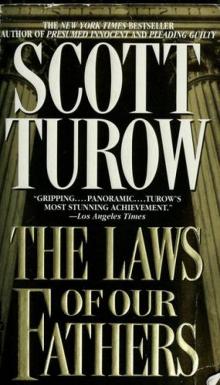 The Laws of Our Fathers
The Laws of Our Fathers Ordinary Heroes
Ordinary Heroes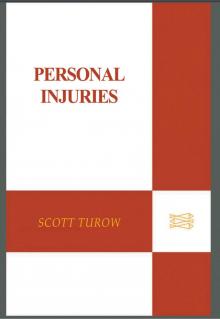 Personal Injuries
Personal Injuries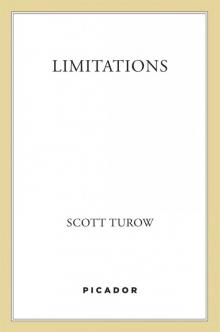 Limitations
Limitations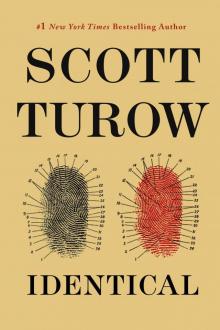 Identical
Identical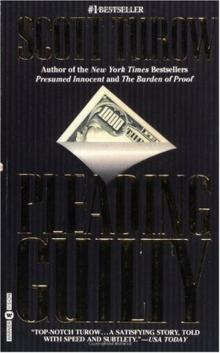 Pleading Guilty
Pleading Guilty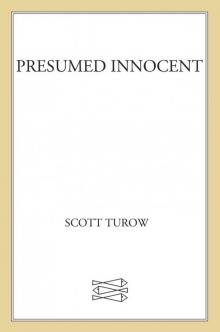 Presumed Innocent
Presumed Innocent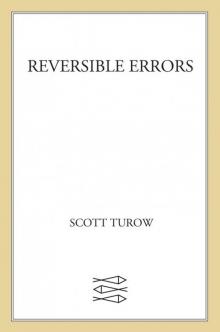 Reversible Errors
Reversible Errors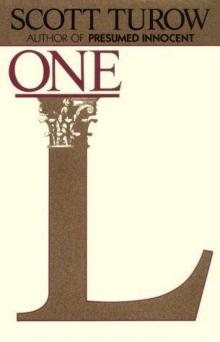 One L: The Turbulent True Story of a First Year at Harvard Law School
One L: The Turbulent True Story of a First Year at Harvard Law School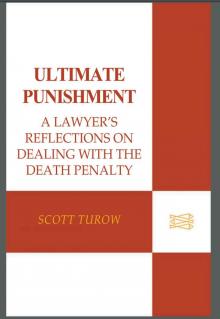 Ultimate Punishment
Ultimate Punishment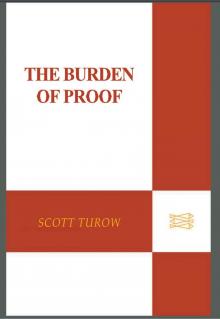 The Burden of Proof
The Burden of Proof Ordinary Heroes (2005)
Ordinary Heroes (2005)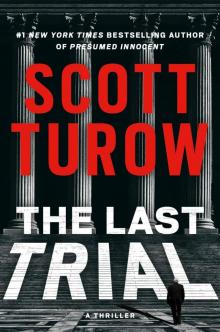 The Last Trial
The Last Trial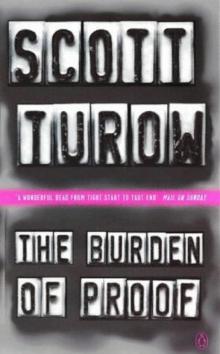 The Burden of Proof kc-2
The Burden of Proof kc-2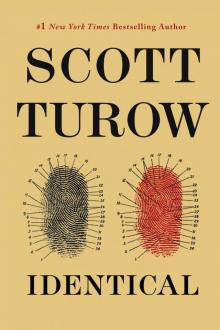 KC09 - Identical
KC09 - Identical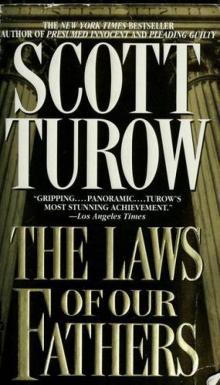 The Laws of our Fathers kc-4
The Laws of our Fathers kc-4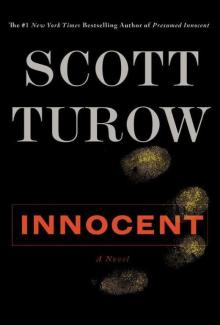 Innocent kc-8
Innocent kc-8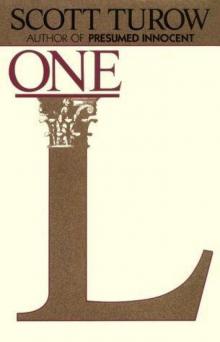 One L
One L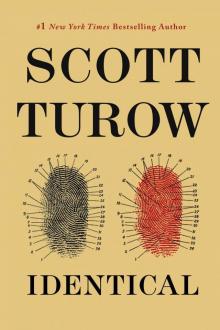 Identical kc-9
Identical kc-9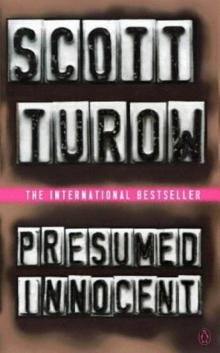 Presumed innocent kc-1
Presumed innocent kc-1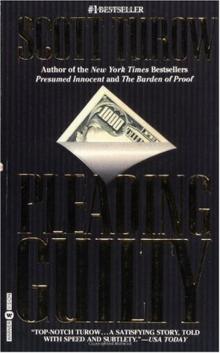 Pleading Guilty kc-3
Pleading Guilty kc-3 One L (1977)
One L (1977)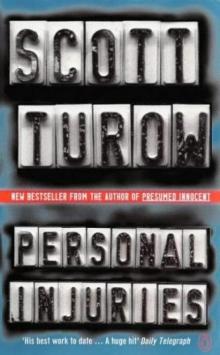 Personal injuries kc-5
Personal injuries kc-5